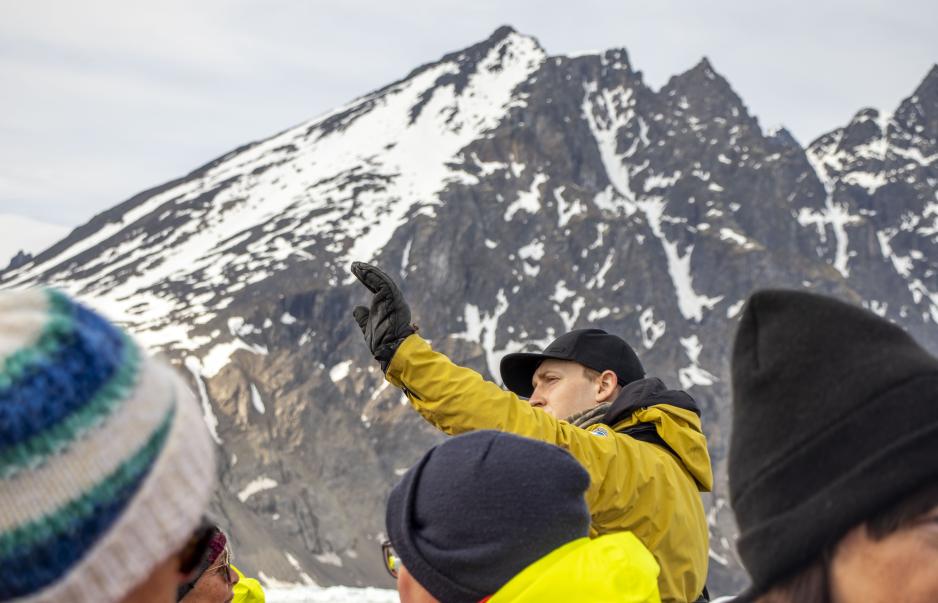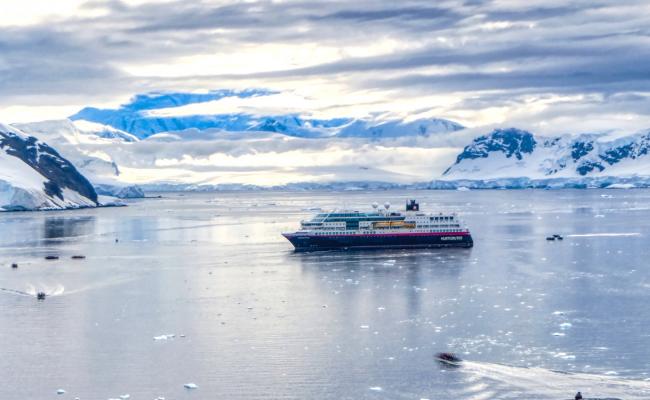AECO Response to High North News Article on Greenwashing

Tourists aboard Hurtigruten Expedition. (Photo: Anne Øien)
This is an opinion written by an external contributor in response to this HNN article. The article expresses the writer's opinions. High North News is not responsible for the content of external links.
Response to High North News Article on Greenwashing Accusations
First, it is important to highlight the value of citizen science initiatives. Citizen science is a recognized and well-established form of research, used in a wide range of studies. These programs engage tourists in meaningful scientific research and help to enhance awareness and understanding of environmental issues.
Several studies have demonstrated that participation in citizen science projects leads to an increased understanding of current issues and a positive behavioral change toward conservation efforts.
Tourists’ and the tourism industry’s participation in citizen science is growing and producing some impactful data on threatened or endangered wildlife in parks and remote locations (Butler, 2023).
Ponant, Hurtigruten Expeditions, and Lindblad are expedition cruise operators and members of AECO, the Association of Arctic Expedition Cruise Operators. Expedition cruising is characterized by an explorer format to the voyage with flexible itineraries, independence of infrastructure, high focus on nature and culture experiences, and with highly qualified guides, lectures, and education as important inclusions.
Expedition cruise vessels vary in size from less than 12 passengers to approximately 500, with an average size of around 200 passengers.
Contribute valuable data
Secondly, these cruises contribute valuable data to scientific research. For example, UNIS's CRUISE#SCIENCE project demonstrated that tourists can successfully collect scientific data, which is used in long-term research projects. This collaboration enriches scientific datasets which might otherwise be unattainable (UNIS, 2020).
The involvement of tourists in scientific research helps bridge the gap between scientists and the public. It enhances understanding and reduces potential mistrust in scientific knowledge by making the research process more transparent and accessible (UNIS, 2020).
Through projects such as HappyWhale, ebird and iNaturalist, passengers gain firsthand knowledge about topics such as climate change, wildlife, and conservation efforts, which has been seen to drive environmental stewardship.
Collaboration between tourists and scientists
To strengthen this perspective, data collected by citizen science has been used in peer-reviewed research, contributing to our understanding of Arctic ecosystems (Theobald et al., 2015). The research can also inform evidence-based management in the regions where vessels operate.
This collaboration between tourists and scientists is also significant for research, as it might often be unattainable due to logistical and financial constraints.
Citizen science in action. (Photo: Anne Øien)
To address the opinion expressed of cruise tourism not being sustainable in any circumstances, it should be mentioned that operators are committed to minimizing their environmental impact. In addition to strict waste management protocols, a use of cleaner fuels, and a ban on HFO, AECO members are obliged to follow strict guidelines that protect wildlife and the environment.
Addressing the Greenwashing Accusations
While concerns about greenwashing are valid, it is important to recognize the genuine efforts of many Arctic expedition cruise operators to promote sustainable tourism.
Transparent communication and continued improvement of sustainable practices are essential. We invite critical dialogue and collaboration to enhance the effectiveness and sustainability of these initiatives, but we appreciate being part of the discussion.
We welcome further discussion on how we can collectively improve and ensure that Arctic tourism contributes positively to scientific research and environmental conservation.
References:
- Butler et al., 2023: Utilising tourist-generated citizen science data in response to environmental challenges: A systematic literature review - ScienceDirect
- Theobald et al., 2015: Global change and local solutions: Tapping the unrealized potential of citizen science for biodiversity research - ScienceDirect
- Bonney, R., Phillips, T. B., Ballard, H. L., & Enck, J. W. (2014). Can citizen science enhance public understanding of science? Public Understanding of Science, 23(1), 3-16. (PDF) Can citizen science enhance public understanding of science? (researchgate.net)
- UNIS, 2020 Can cruise tourists become citizen scientists? - UNIS
- AECO | Association of Arctic Expedition Cruise Operators



